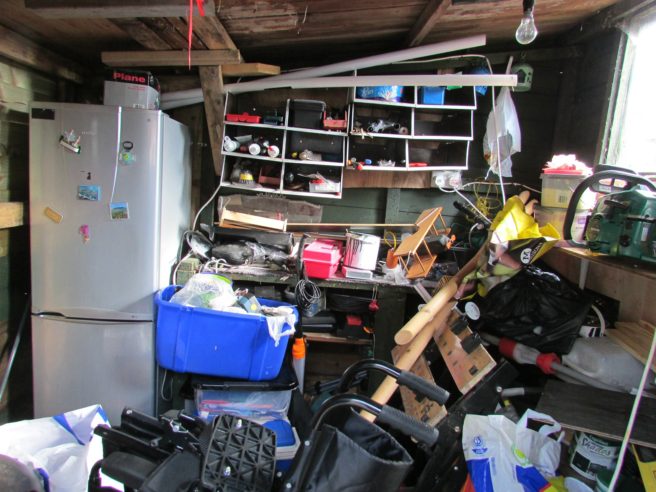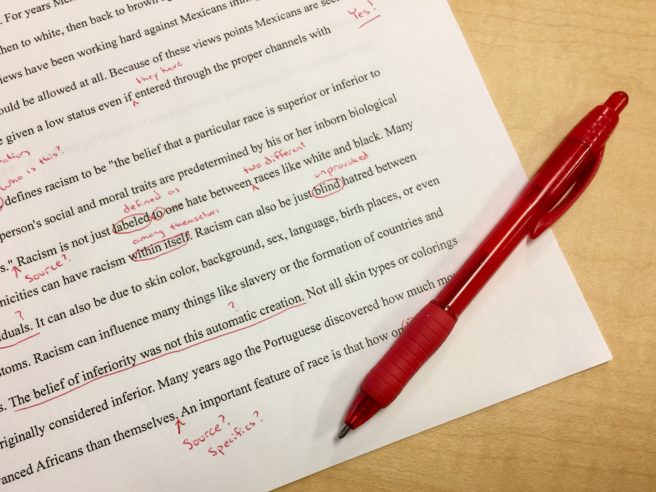How to be Polite in English
You may have taken a very grammar-driven English course. Many classes are set up this way. You learn a variety of verb tenses and grammar rules, and then you do your best to communicate without making mistakes.
And this is fine. Grammar is important, and we want to communicate with as much accuracy as possible. (On that note, check out this article on 25 English mistakes that even advanced learners make.)
But some English courses don’t teach enough real expressions for handling everyday situations.
And this is a problem because many English learners have trouble finding polite, appropriate phrases for common situations.
If you’re one of these people, hopefully this article will help. Here are eight techniques and over 50 expressions to help you be polite in English.
1. Use tentative language
To be polite and soften our message, we often use hesitant language. We use these tentative expressions even when we’re completely convinced of what we’re saying.
So instead of saying “I’m not the best person to help you with this,” you could try one of these instead:
“I’m not sure I’m the best person to help you with this.”
“I don’t know if I’m the best person to help you with this.”
“I might not be the best person to help you with this.”
Some other examples of polite, tentative language:
“It seems there has been some confusion.”
“It looks like I won’t be able to make it to work on time.”
“It appears we have no choice.”
“Maybe we should consider other options.”

2. Use “small” words (small, a little, a bit, a few, a couple, slightly, just, not quite, etc.)
These small words will soften your message and (hopefully) keep your listener from getting offended by what you have to say.
Some examples:
“I just need a few more minutes to finish.”
“The essay is solid, but I think we need to clean up the grammar a little bit.”
“I think a couple of things might need to be changed a little bit.”
“I’m sorry. I just have a quick question.”
“We’re not quite sure what we’re expected to do.”

3. Use past and future tenses
Sometimes when we want to be polite, we avoid the present tense.
Think about the difference between “What do you want?” (present tense) and “Did you need something?” (simple past). The second one sounds a lot nicer, right? Changing the verb tense to the simple past makes the question sound less direct, and therefore more polite.
Some other examples:
“I was wondering if you could help me.”
“I was hoping to ask you a few questions.”
“I’m sorry that I won’t be able to attend the party.”
“I think we’re going to need more time.”

4. Avoid saying “you”
You can sound accusatory if you’re giving criticism or pointing out a mistake. If you can, it’s often better to use “we,” or find another way to get your point across.
Some examples:
“It looks like there’s a mistake on the invoice.” (Not “You made a mistake…”)
“I think we could improve the essay by making a few changes.” (Not “I think you could…”)

5. Avoid negative language
Directly calling something bad, terrible, awful, etc. could be perceived as rude. Instead of doing this, we often use a positive adjective in the negative form.
So instead of saying “The dress looks terrible,” you could try:
“I don’t think that’s the best dress for you.”
“That might not be the most flattering dress.”

6. Avoid negative imperatives (telling someone not to do something)
Telling someone what we want them to do is often more polite than telling them what we don’t want them to do. Adding a “please” also helps soften the request.
Some examples:
“Please recycle your cans and bottles.” (Instead of “Don’t throw your cans and bottles in the trash.”)
“Please submit the assignment by Thursday.” (Instead of “Don’t submit the assignment after Thursday.”)

7. Use the words I’m afraid or Sorry
To be more polite, we often preface a statement with I’m sorry or I’m afraid. We typically do this if we’re interrupting, disagreeing, or communicating bad news. Keep in mind that I’m afraid is much more common in British English than American English.
Some examples:
“I’m afraid we won’t be able to go to the wedding.”
“Sorry, I don’t think that’s right.”
“Sorry, could you please tell me if this is building 14C?”

8. Use multiple techniques
You shouldn’t restrict yourself to just one technique. You can mix a variety of techniques to ensure you’re being polite in English.
Some examples:
“I was hoping I could speak to you for a few minutes.” (techniques 2, 3)
“I’m afraid that won’t be possible.” (techniques 3 and 7)
“I don’t know if that’s the best decision.” (techniques 1 and 5)
Polite expressions for a variety of situations
In English we have some common polite expressions that we use in certain situations. Here are some that you should know. Notice that most of the expressions use one or more of the techniques above.
making suggestions
• Have you thought about…?
• Have you considered…?
• What if you/we…?
• Could you/we…?
• Would you/we be able to…?
• You might want to think about…
• You might want to consider…
• Perhaps you/we could…
• Maybe you/we could…
• It may be a good idea to…
• It might be a good idea to…
• I thought we could…
• I thought we might…
declining an offer
• Thank you the offer, but…
• I appreciate the offer, but…
• Thank you so much, but…
refusing a request
• I wish I could, but unfortunately…
• Unfortunately, I don’t think I’ll be able to…
turning down an invitation
• I wish I could, but I won’t be able to make it.
• I appreciate the offer, but I won’t be able to attend.
saying you don’t like something
• It’s not my favorite.
• I’m not a huge fan of…
• It might not be the best…
asking someone to repeat themselves
• I’m sorry. I didn’t catch that.
• Sorry. Could you please repeat that?
pointing out a mistake
• It looks like…
• It seems like…
• There appears to be…
• There might be an issue* with…
• I think we may need to address…
• I feel like we should take a look at…
*Note that we can use euphemisms like issue instead of problem to soften our message. For more polite euphemisms, see 100+ Common Euphemisms You Need to Know.
interrupting (when you’d like to make a point)
• Excuse me. Could I say something?
• Excuse me. Could I add something?
• Sorry, could I interrupt for just one second?
• I’m sorry to interrupt, but…
• Excuse me for interrupting, but…
• Can I just mention something?
interrupting (because you have a question)
• Excuse me. Do you know…?
• Excuse me. Could you tell me…?
correcting someone
• Actually, that’s not quite correct.
• I’m afraid that’s not quite right.
• I’m not sure that’s accurate.
asking for something
• I was wondering if…
• I was hoping…
• Do you think you/I/we could…?
• Would it be possible to…?
• Would it be a problem if…?
Generally, these expressions are too polite if we’re asking for something minor. Saying “Do you think you might be able to pass me the salt?” would be entirely too formal/polite (unless you’re dining with the pope or the Queen or England).
asking for permission
• Would it be possible to…?
• Would it be a problem if…?
• Would it be okay if…?
We can make these three more polite by adding “Do you think it…” (e.g. “Do you think it would be possible to take tomorrow off?”)
• I was wondering if I/we could…
checking to see if someone is finished with something
• Have you had a chance to work on…?
• Have you had a chance to finish…?
The above strategies and expressions work well when we want to be polite.
Sometimes, of course, we want to be more direct and forceful with someone. In these situations, go ahead and use a more blunt expression.
Also, as a final note, keep in mind that some things are universal. Listening and showing empathy go a long way in any language.







